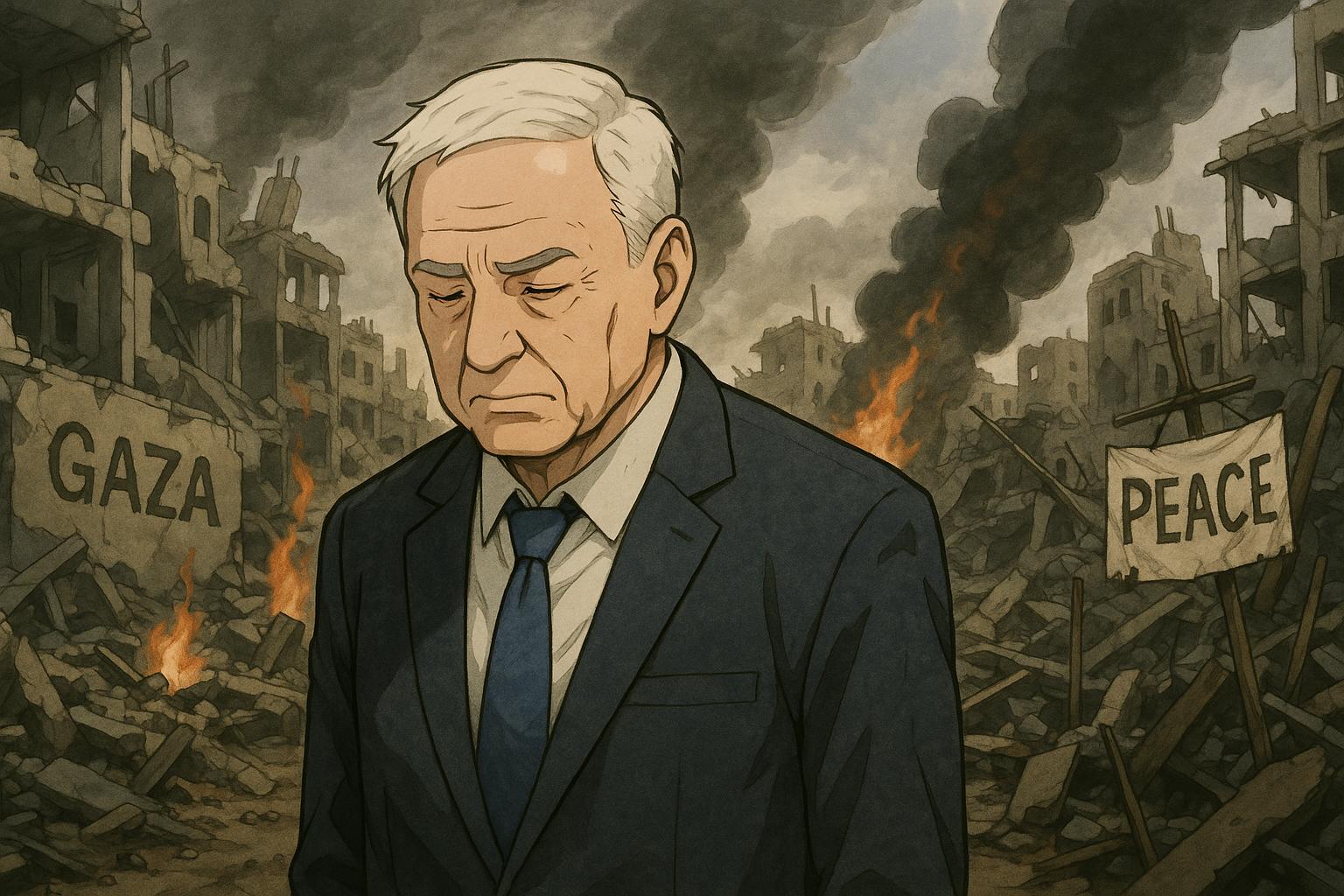A former Israeli Prime Minister, Ehud Olmert, has raised significant concerns regarding Israel's military operations in Gaza, stating that the actions currently being undertaken are "very close to a war crime." In an interview with the BBC, Olmert expressed that the visible consequences of the campaign disproportionately affect the Palestinian population, describing the high casualty rates as both "obnoxious and outrageous." His remarks were made alongside similar criticisms from the leader of Israel's centre-left Democrats party, who characterised the nation as a “pariah” for its treatment of civilians, particularly highlighting the ongoing ramifications of the crisis on innocent lives.
Recent developments have intensified scrutiny on Israel’s blockade of the Gaza Strip, which the United Nations and humanitarian organisations like Médecins Sans Frontières (MSF) have condemned. These organisations have pointed out that such blockades not only obstruct essential food supplies but also deny basic humanitarian assistance to a vulnerable population already suffering from the dire impacts of ongoing conflict. MSF described the limited aid that was allowed into Gaza as inadequate and a misleading attempt to alleviate the humanitarian crisis, labelling it a “smokescreen” for the continued siege.
Responses from the international community have been swift. The UK government has suspended discussions regarding a new free trade agreement with Israel, while the European Union, as Israel's largest trading partner, has announced a review of existing agreements with the nation. Such diplomatic actions reflect growing unease among global powers with regard to Israel's military tactics and their humanitarian implications.
While Olmert has unequivocally condemned the current government's strategy, he has previously voiced concerns over similar issues from his time in office, notably relating to the Second Lebanon War and the 2009 Gaza offensive. His past statements have often grappled with the ethical ramifications of military operations and the necessity for a two-state solution, highlighting the urgency of renewed peace negotiations. Indeed, he stressed during an interview with Vatican Media the need for a credible political process that acknowledges both Israeli and Palestinian aspirations for self-determination and security.
The humanitarian situation in Gaza has drawn comparisons to previous crises, with MSF illuminating the critical shortages of medical care and resources necessitated by the ongoing blockade. Their operations focus on providing surgical care, maternal and child health services, and addressing severe water and sanitation issues, all which have been exacerbated by the restrictions on supplies.
Moreover, a controversial US-backed aid initiative is poised to complicate the humanitarian landscape further. The plan, spearheaded by the Gaza Humanitarian Foundation, proposes to replace traditional UN roles in aid distribution with large, centralised distribution hubs, guarded by Israeli forces. Critics within the international community have voiced concerns that this approach could not only politicise the delivery of aid but also inadvertently displace or endanger vulnerable populations, as access to these hubs may require long and perilous travel for many Gazans.
As the situation continues to unfold, the actions taken by Israel and the responses from the international community suggest an urgent need for a reassessment of strategies aimed at addressing both immediate humanitarian concerns and the long-standing political impasse in the region. The call for a two-state solution and the need for humanitarian assistance parallel the ongoing discussions regarding the future of Israeli-Palestinian relations, underlining the complexity and urgency of the issues at hand.
Reference Map
- Paragraphs 1, 2, 3, 4
- Paragraphs 1, 2, 5
- Paragraph 2
- Paragraph 2
- Paragraphs 1, 4
- Paragraph 4
- Paragraph 3, 6
Source: Noah Wire Services
